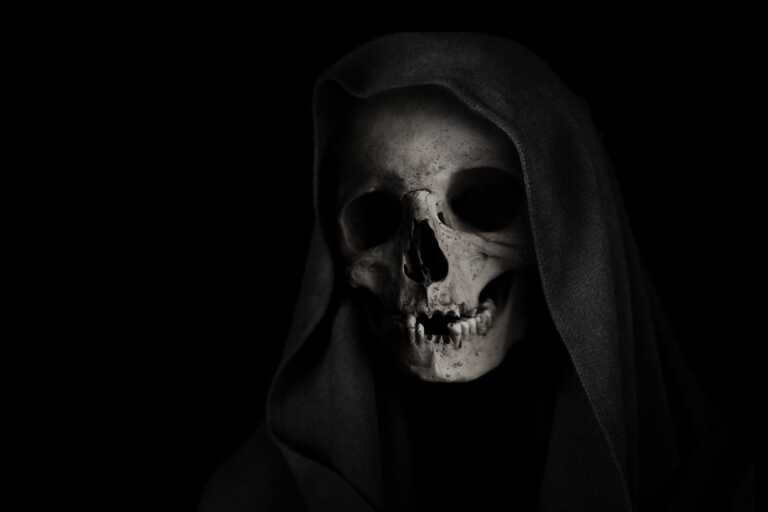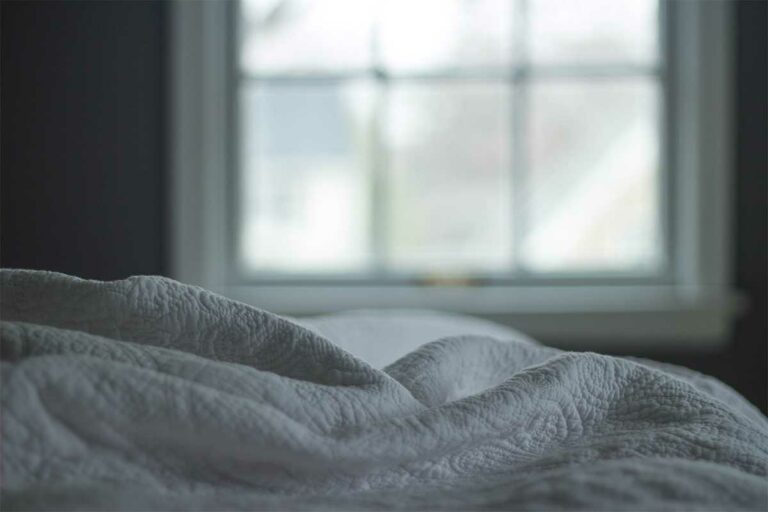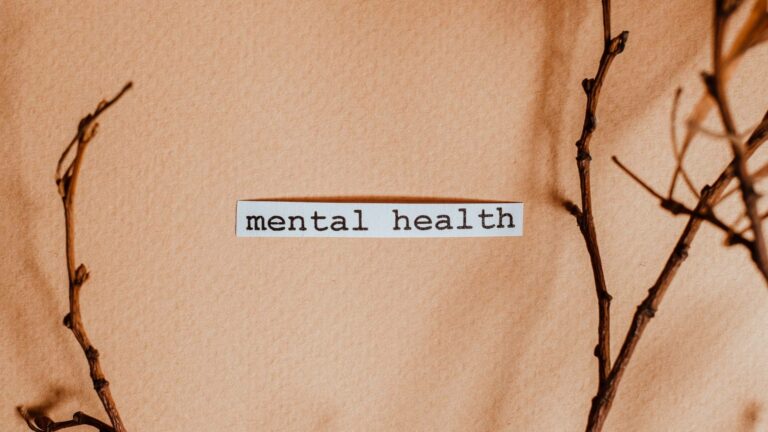I want to preface this piece by saying that it was incredibly painful to write. It took me about three hours and a dozen Kleenex as I revisited the experience of my mom living with colon cancer.
On a more personal note: It took me nearly six years to work up to writing this. It’s the most difficult thing I’ve ever written.
For those who knew her, and even for those who didn’t, this will be an extremely hard read. It’s not meant to traumatize. Rather, it’s meant to step through all of the complex emotions that happen when a family member is diagnosed with cancer.
Have a good cry if you want to. I did. It helped.
Through my own cancer experience, I’ve not spoken much about my mother’s story. I’ve felt that it’s not my story to share. I still think that’s true, to a degree.
So, inb order to tell it, I’ve peppered this narrative with how I was feeling at the time. I went back to old journal notes. I combed through emails that mom, dad, and I exchanged as she went through the hell of cancer, survivorship, and recurrence.
I miss her terribly and, with my father’s permission, have published this in her memory with the hope that it helps others navigating their own losses understand that they are not alone.
These emotions are heavy. The story is hard. So is being a caregiver to someone with cancer.
Although I was simply a part-time caregiver, taking her to and from some appointments, helping out with chores on the weekends, and running errands where I could, having someone you love go through cancer is exceptionally difficult.
I don’t claim to speak for all caregivers, nor children of parents who live with cancer.
This is my mom’s story as I perceive it.
I hope this provides a glimpse into the traumas of cancer and does justice to a woman whose presence I miss so dearly.
Mom: this one’s for you.
Her Cancer Story
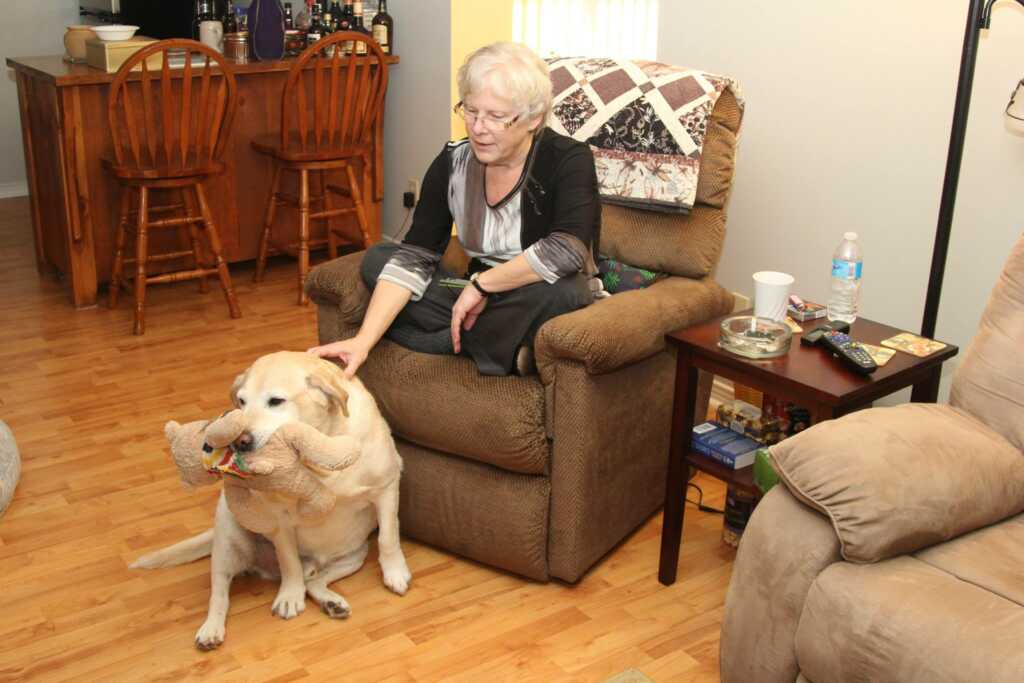
My mother’s story began late in the summer of 2012.
I’d taken her mom to a colonoscopy appointment earlier in the summer.
During that procedure, a tumour was discovered.
Over a meal at Denny’s we talked about some of her fears and optimism.
It was a great shock to our family, but we recognized that it didn’t necessarily mean there was cancer.
It could be benign.
I don’t know anything about tumours.
As a result, she met with a gastrointestinal surgeon, who let her know that they would cut the tumour out and that she might not need chemotherapy.
There was some optimism coming out of that appointment that things might not be as bad as they were.
This is a theme that, little did we know, would recur.
That’s good, right?
If it was cancerous, it would probably be obvious on the imaging.
Even with pre-surgical imaging, it wasn’t clear if the tumour was cancerous. We’d be subject to the “cut, wait, and find out” method of diagnostics.
She underwent bowel resection surgery in July of 2012. It took several weeks to get the pathology back. It was our first experience with scanxiety, which would come to be a routine part of life.
The pathology would come back: stage III colon cancer.
She’d need chemotherapy after all. It was not something we had direct experience with as a family, so it really wasn’t clear what to expect.
That sounds serious. Is that serious?
What does “stage III” even mean?
She’s strong willed and stubborn. She’ll get through it.
She started chemotherapy, the dreaded FOLFOX, on September 5th of the same year.
Her spirits were high throughout the whole ordeal. It was impressive to me. I knew she was a strong woman, but was taken aback by how well she handled everything.
She went through it all with a smile on her face and the determination to persevere.
It barely broke her stride.
She doesn’t seem sick, except for the side effects of treatment.
The cold sensitivity seems like it would be really annoying, and she sleeps a lot, but otherwise it doesn’t seem that terrible.
She even went so far as to joke about treatment not being so bad, which I now understand was her way of shielding my father and I from the immeasurable torment of cancer treatment.
That’s it? That’s all?
After getting through treatment, she rang the bell at the cancer centre.
On February 14th, 2013, she marked the end of twelve cycles—six months—of bi-weekly chemotherapy.
It’s probably not how she wanted to mark her 27th wedding anniversary.
Little did we know that I would ring the same bell nearly eleven years later.
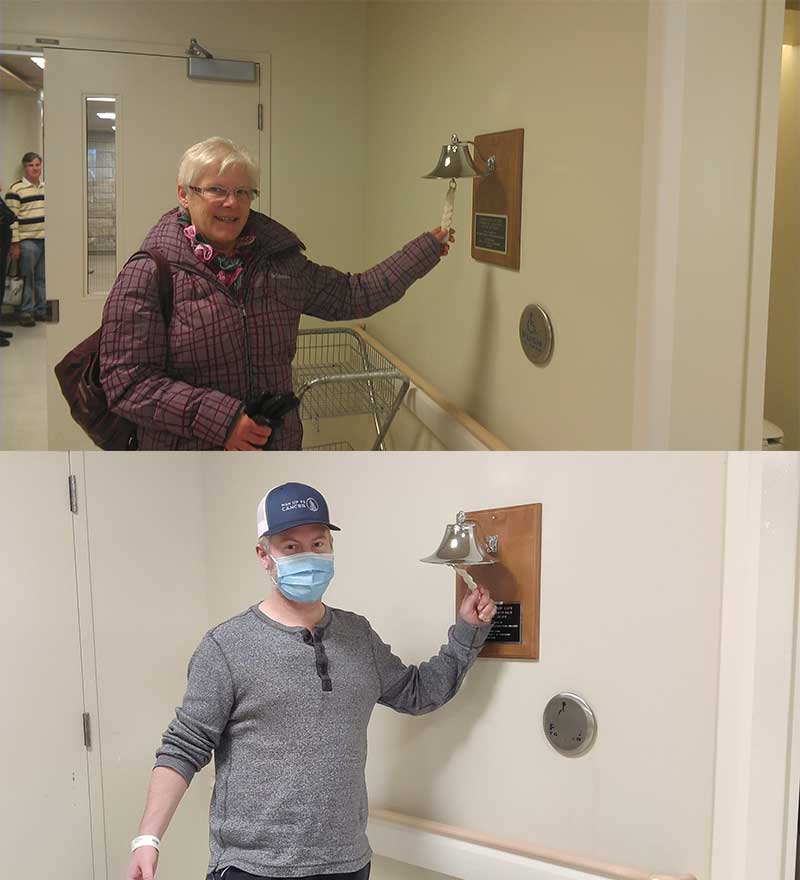
After that, she continued to live her life as if cancer had never entered it to begin with.
There was never a need for worry. Treatment was a success. She was alive!
My parents would continue enjoying their life together.
I’d continue to visit for Sunday dinners and regular coffee dates, always bringing a couple of carrot muffins with me.
That time was short lived, though.
In September of 2013, she and my dad ended up relocating for work. Our visits would become fewer and more spaced out.
We’d still talk on the phone each night: a routine we picked up when she was going through treatment (and one which I carry on with my dad to this day).
At the same time, I started college.
The entire year of 2013 was a blur.
I worked four jobs, was attending college full time, and was trying to get out of an educational and career rut.
We didn’t see each other as often as I would’ve liked, but still managed to visit my mom and dad when I could.
Cancer wasn’t even on our radar for that entire year.
She seems fine. I can focus on getting through school.
But, the letter came saying that it was time for some tests. So, off she went.
June 16th of 2014 rolled around—about sixteen months after chemotherapy ended—and she was summoned to her oncologist to go over the results from her surveillance.
All part of the plan. Nothing to worry about here.
There was concern that the cancer had recurred.
It did.
Ok. What does that even mean?
There was an abdominal tumour that needed to be addressed, but it was inoperable.
Fuck. That doesn’t sound good. Now I’m really worried.
She’d be receiving radiation and another six months of aggressive chemotherapy to try and kill the recurrent cancer.
Well, if they’re treating it, maybe they can cure it?
That sounds like a lot of treatment. More than the first time. That’s worrying.
The radiation didn’t work to shrink the tumour.
I didn’t know that could happen. As far as I knew, radiation on a large tumour was always at least some degree of effective.
Wrong I was.
Treatment can fail like that?
Hopefully chemotherapy can finish the job.
But chemotherapy didn’t start as planned.
This foreshadowed a lesson we’d all learn through this experience: with cancer, the plan can change very quickly and unexpectedly.
It turned out that surgery would be required after all, just not for the abdominal tumour.
There was a new, cancerous growth in her ovaries that needed to be removed.
Fuck. More tumours?
During the surgery on the ovarian tumour, cancer was found on the liver.
It was inoperable, like the abdomen.
Fuck. EVEN MORE tumours?
Then, there was more imaging.
Cancer in the liver. Cancer in the lungs. Cancer in the bones.
Incurable, except for chemotherapy to perhaps hold it back a little longer.
There was lymphedema and swelling of the legs and feet from the palliative medication and steroids.
It really seems like my mom is dying. How did the cancer spread so quickly?
February of 2015 was upon us.
She’s had an oxygen system at home, with portable bottles for leaving the house.
She looked like the Hollywood version of a cancer patient.
We’d still go out from time to time. For brunch. To get her some comfortable clothes.
It’s hard seeing her like this.
I can’t imagine what she’s going through right now.
The second chapter of chemotherapy finally started, but wasn’t without its hiccups.
At first, a hospital admission. Low blood oxygen from fluid in the lungs due to the cancer growing there.
With that, the treatment options were being reconsidered. It was devastating.
Reconsidered?
They just started.
There were more tests to try and determine why the cancer was spreading so quickly.
It was propagating quickly because it was a lymphosarcoma—a rare form of colon cancer—that had metastasized in her lymphatic system.
A what?
Where?
As time and treatment went on, medication was added to help tackle the cancer in her bones. The bone pain was a great source of pain and discomfort for her.
There was also the addition of compression therapy for the lymphedema, which is a condition where the fluid in a person’s lymphatic system doesn’t drain correctly and can cause swelling.
She sure did have a lot of swelling.
In May of 2015, as mobility became more difficult, a wheelchair entered the mix. It became the standard method of getting around when she was outside of the house.
She wasn’t a fan of needing the wheelchair. The growing loss of her independence was starting to wear on her.
Wow. These are pretty big changes.
I was in college and she wanted to see me graduate. It was May of 2015 when I walked the stage.
She attended, oxygen, wheelchair, and all.
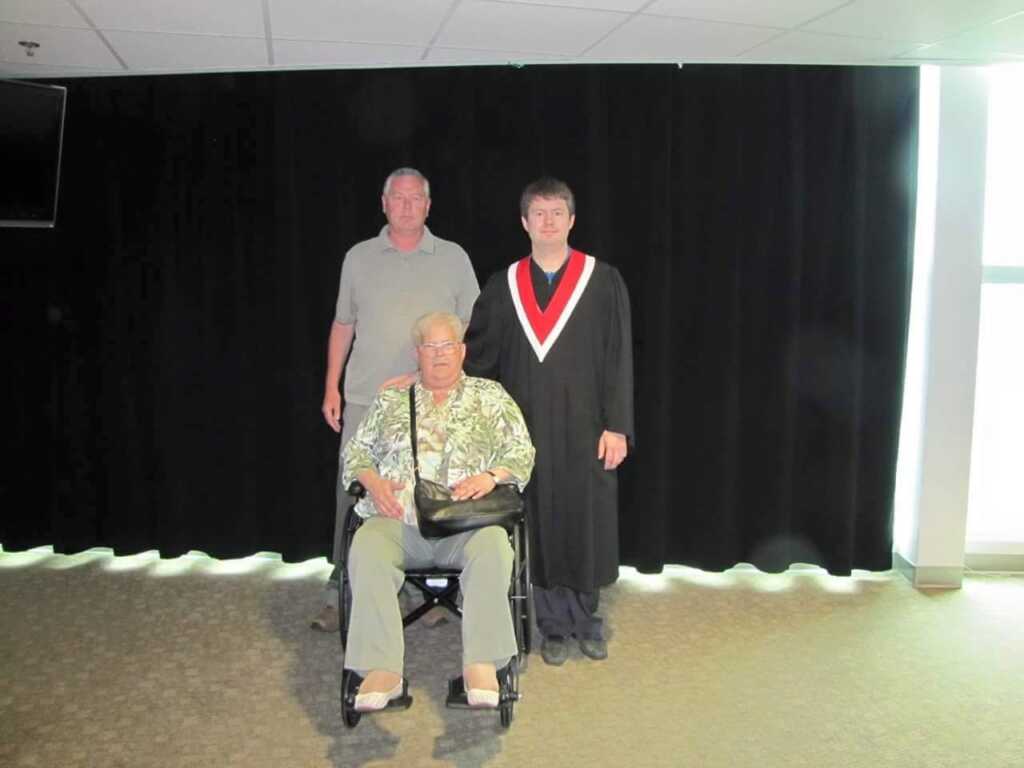
She even had a clot in her lung, but that didn’t stop her from making it.
Mom was certainly determined.
A lung clot?
Scary.
She told me she wanted to hold on for convocation.
If I go through with this, will she have anything else to look forward to?
What’s next to keep her spirits up?
After convocation, it was back to the harsh reality of the situation.
There was more chemotherapy—the same regimen of drugs she had taken during her initial treatment—but this time she had an allergic reaction to Oxaliplatin that resulted in respiratory arrest.
Half an hour later, she was stabilized.
It was surprising that a treatment she’d already endured so much of could cause a reaction like that.
REALLY scary.
July 2015 rolled around.
Her lymphedema continued to get worse. There was a lot of water and fluid retention and the compression therapy was losing effectiveness.
Her skin was tearing to the point that one of the wounds became infected and required antibiotics. She was having wound care multiple times a day.
Since the allergic reaction, she was put onto a new regimen of chemotherapy drugs: a biologic, since the Oxaliplatin was off the table.
More unpredictable change.
More coping.
A new drug.
Maybe more effective?
As my mom worked her way through cancer treatment, her own mother also died. Maureen died of metastatic cancer in October of 2014.
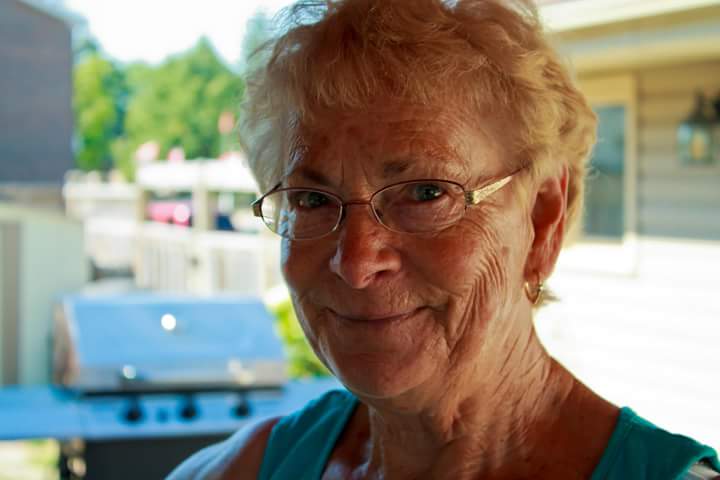
Grandma’s cancer was everywhere. I think it was pancreatic cancer, but didn’t know enough about the disease at the time to be sure.
Nonetheless, we had planned for my mother to be able to attend the inurnment of my grandmother. We were going to wait until mom was well enough to travel again.
Unfortunately, she never did make it.
I went in her place. It was heartbreaking.
She wasn’t able to pay her final respects to her mom. That’s brutal.
This cancer thing has been real for a while and I just can’t bear to have any regrets.
For either of us.
The calendar flipped to October of 2015.
I separated from my ex-wife. She committed infidelity.
It was unforgiveable and extremely frustrating to deal with.
More unpredictable change.
More coping.
On top of everything else?
How can I even care about this right now?
I’m working full time, in school full time, travelling to see my parents every weekend, travelling for my job.
I can’t fucking deal with this right now.
Fuck her.
I’m changing the Netflix password.
In November of 2015 things continued to deteriorate with mom: the tumours continued to grow, impacting her ability to eat, breathe, and find comfort.
There were compression fractures—six of them—in her lower back.
To top it off, the leg infection came back with a vengeance. The antibiotics had a hard time keeping it at bay.
Mom started to have issues with her veins from the chemotherapy. It was increasingly more difficult for her to receive IV medications. This caused a lot of frustration and upset.
The home care nurses were only allowed three pokes and then it was off to the hospital to try and find a vein. There were many four poke days.
Then, all of a sudden, there was a hospital bed in the basement where she would sleep and read her books.
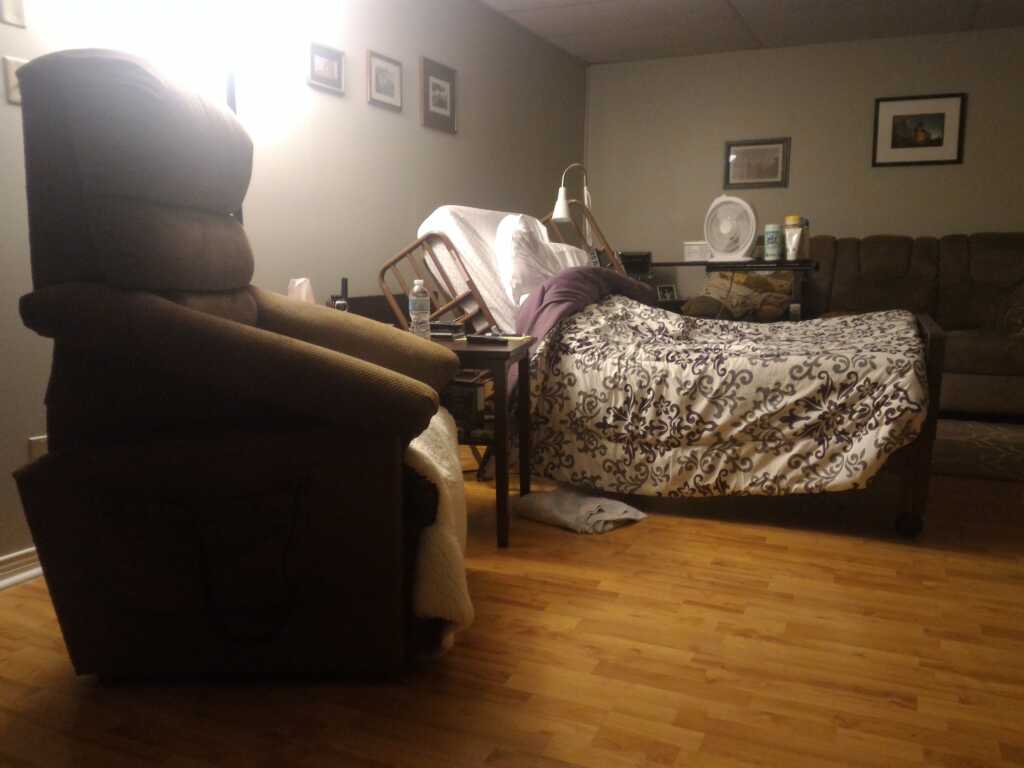
It was becoming increasingly clear that she didn’t have much time left.
This is definitely going to be our last Christmas together.
I can’t believe that I’m going to lose her. Things are going downhill so quickly now. It’s not fair. She deserves better.
How is it 2015 and she has to suffer so greatly?
Do we not care about cancer patients?
This is my mom. She needs to be well. There’s so much left for her to see and do. It can’t be stripped away. It just can’t.
Aren’t there better pain medications? Can we get stronger antibiotics? What the hell needs to happen so that she doesn’t need to suffer anymore?
My ex is calling me about her fucking cell phone contract. Like I give a single, solitary fuck about that. Figure it out. Leave me alone, bitch.
In November 2015: a stair lift. She couldn’t get from the basement to the main level of her home without it.
It helped a lot in terms of quality of life, which was already on such a downward trajectory.
I spent a good chunk of December with my parents, travelling to spend my weekends with them.
I tried to find things to keep my mom’s spirits up.
We’ve already said everything that we need to.
I’m going to pick recipes with her and we can cook together, just like we used to. She’ll like that, even if she can just sit and watch. I can show her how much it meant to me that she took the time to teach me when I was younger. Maybe she’ll be proud.
We don’t even have to talk about cancer anymore. We all know how shitty it is and how little time is left.
We’ll spend the time laughing with each other and reminiscing. Diving into nostalgia and talking about all of the fun we’ve had over our 28 years together.
We’ll watch whatever movies she chooses. That should be fun!
There’s no reason to waste time on sadness right now. The minutes are precious and the clock unforgiving.
When we hit Christmas of 2015, there was a somber, unspoken understanding that this would be some of our most precious remaining time together.
We did all of the things that a family does at Christmas: opened presents, ate good food, and shared in the company of friends and family.\
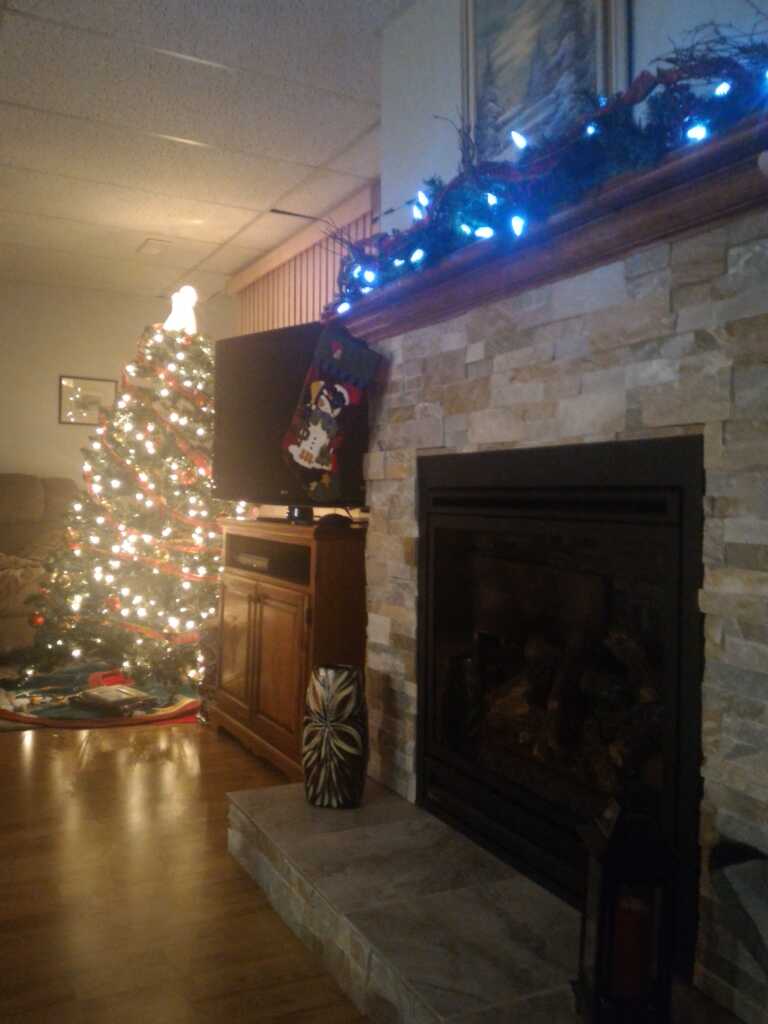
I spent a lot of late nights over the Christmas break sitting up with mom, chatting until the wee hours of the morning. She couldn’t sleep due to the steroids she was taking, so we had lots of time to hang out.
At the same time, there were a lot of pain medications in her veins, so she drifted in and out of wakefulness often.
I cherished every moment of that Christmas break.
After Christmas, mom decided that she was done with treatment.
It wasn’t working.
Around that time, she gave me a letter to open after her death. I still have it, of course, and it contains much of her wisdom.
She was suffering immensely with a poor quality of life.
With my dad and I by her side, she told her care coordinator that she’d had enough. It was time to stop.
We thought, maybe, she would be able to hold on until February 14th for my parents’ thirtieth wedding anniversary.
Time would tell.
What does this mean?
How quickly will the decline come?
I returned back home on January 4th of 2016, after the Christmas break.
I visited the following weekend, too.
But on Friday, January 15th, I got the call from my dad: “Come quickly. Your mother is in the hospital.”
I remember that phone call very vividly. It came at lunchtime as I was treating myself to a Nacho poutine; a Friday ritual to treat myself to lunch out.
I rushed home to pack a bag and grab my dog, Grissom, then made my way an hour and a half to the hospital.
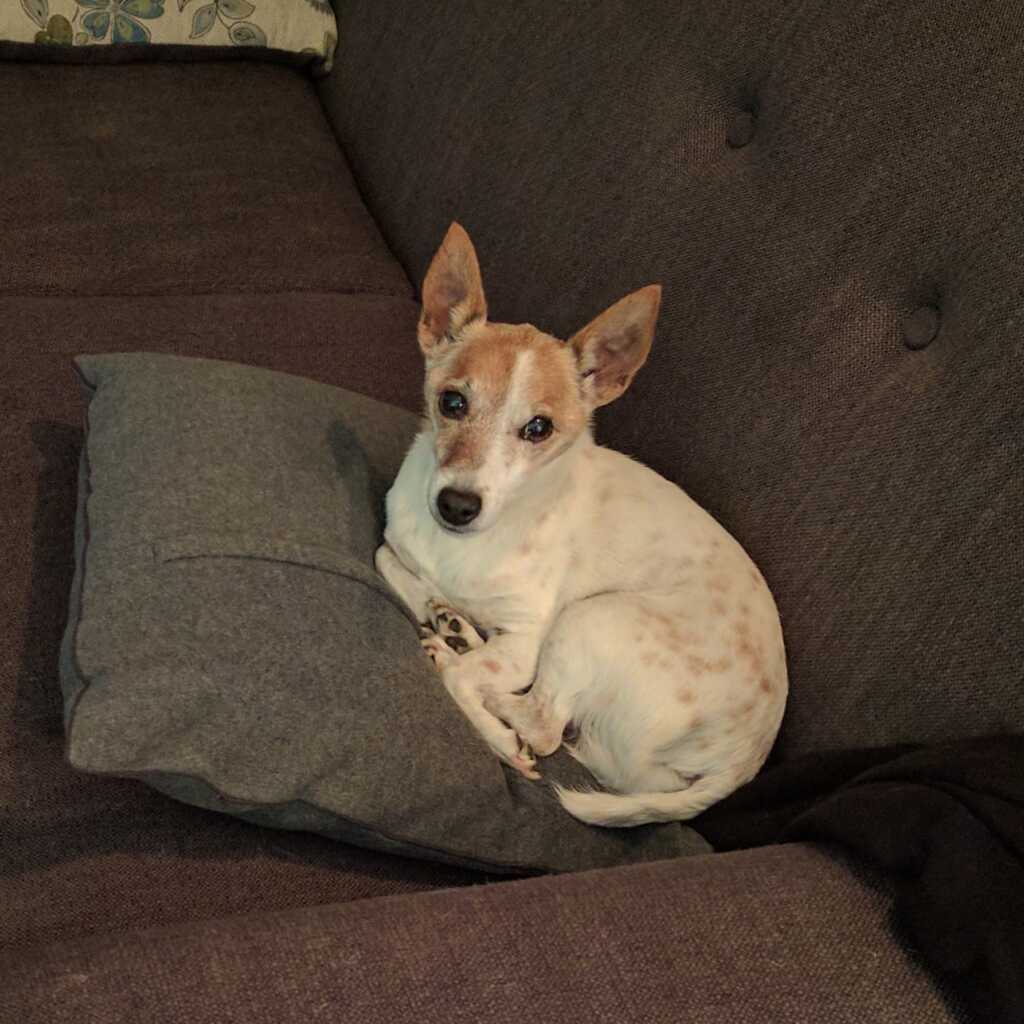
I knew it was the call.
I hope I make it in time.
After spending some time in the emergency room, mom was admitted.
The hospital had an isolation room available, and they set us up in there. Mainly so we could have some privacy and visitors.
The nurses brought in a reclining chair for me. I spent 23 hours a day at the hospital, sleeping on the vinyl chair each night that I could.
I stayed overnight on Friday, Saturday, Sunday, and Monday.
During that time, there were lots of visitors. I gave mom my cell phone so she could call some of her friends from afar and say her final goodbyes.
In the evening, when everyone cleared out, we talked a lot.
We told each other how important we were to one another.
We said “I love you” and “I’m going to miss you.”
She told me how proud she was of me. She shared a few, final tidbits of life advice.
Mainly, we strolled together down memory lane. We made fun of my dad’s terrible singing. We talked about her time working in the trades. We really just went on an adventure through her life.
It was very bittersweet. Although I was grateful to have the time with her, mom’s condition got worse and worse.
It was clear that she was suffering.
I can’t believe this is happening.
As the days passed, her lungs kept filling with fluid that needed to be vacuumed out. It was getting harder for her to breathe.
She was given more medication to keep her comfortable and sedated. As the amount of medication increased, the number of conversations decreased.
Soon, she was sleeping, never to wake up again.
I don’t remember when that line was crossed because I didn’t know that it was going to happen.
No. This can’t be real.
What were our last words to each other?
Does she know that I love her?
Then, January 19th, 2016, my mother took her final breath just after 8pm.
Seeing her there, laying still in the hospital bed, brought on a flood of emotions.
I went over to her, held her hand, and kissed her on the forehead. It was going to be the last time I’d ever be able to do any of those things, which was hard to sit with.
It was surreal feeling knowing that we’d never share a conversation, a hug, or a laugh. In spite of all of the anticipatory grief, it still hit very hard.
There was a lot of grief. It’s something that I still struggle with from time to time.
She looks so peaceful. More so than she has in the last bunch of months.
I’m relieved that she’s no longer suffering.
I feel guilty for thinking that.
Is that normal?
A week later, we’d hold a funeral service.
There were about 150 people there from all over the country. It was clear to me that her friendships and relationships with other people were so strong.
Eulogizing at the podium, I shared stories that most of the people there would be familiar with: her love of cooking and baking, her love of Painter the yellow lab, and her love for friends and family.
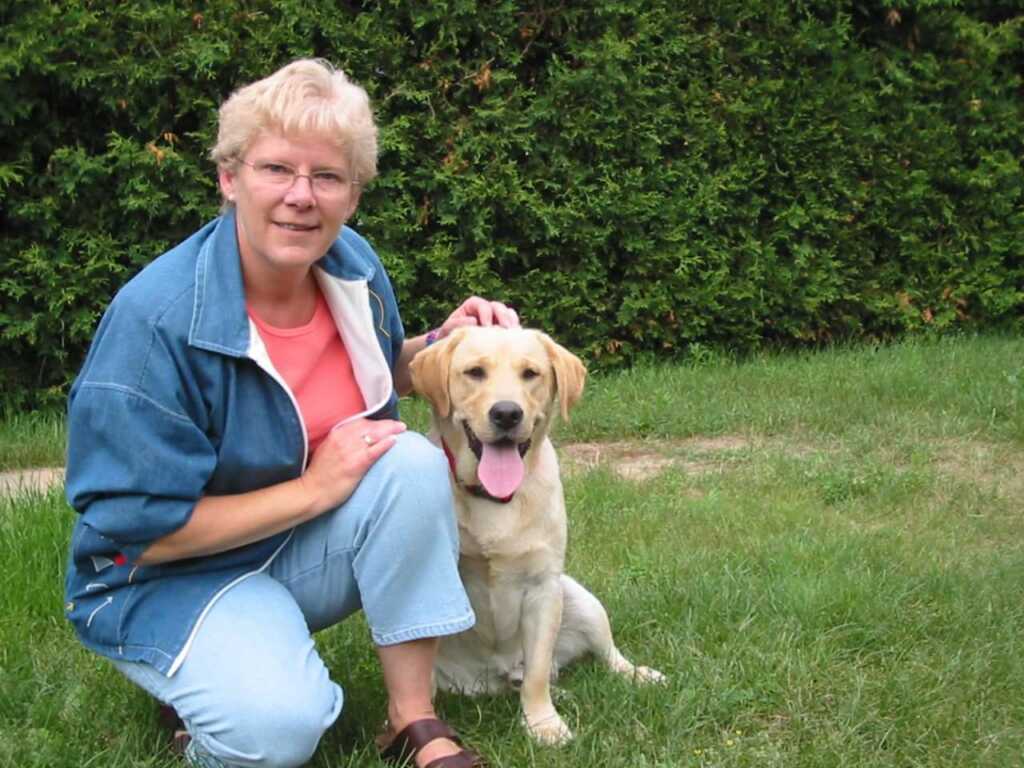
It was a sad day but brought a small element of closure to her death.
We had a gathering at my parents’ house afterwards, which included a playlist of a bunch of mom’s favourite songs.
We toasted her. Shared stories. Laughed. Cried. It was a really emotional get together.
That’s the mark she left.
Look at everyone who’s here to pay their respects and say “goodbye.”
I hope I can leave a mark like her.
Her wish was to have her cremains taken to Nova Scotia, to a place where she was born and raised.
In August of 2016, with a small graveside service, we committed her urn to the earth, laying her to rest with her parents alongside one of the tidal rivers of the Atlantic.
We placed sunflowers—her favourite—over her granite marker. It’s something that my father and I still do to this day whenever either of us has the chance to visit her resting place.
Mom’s journey was over.
She could be at peace.
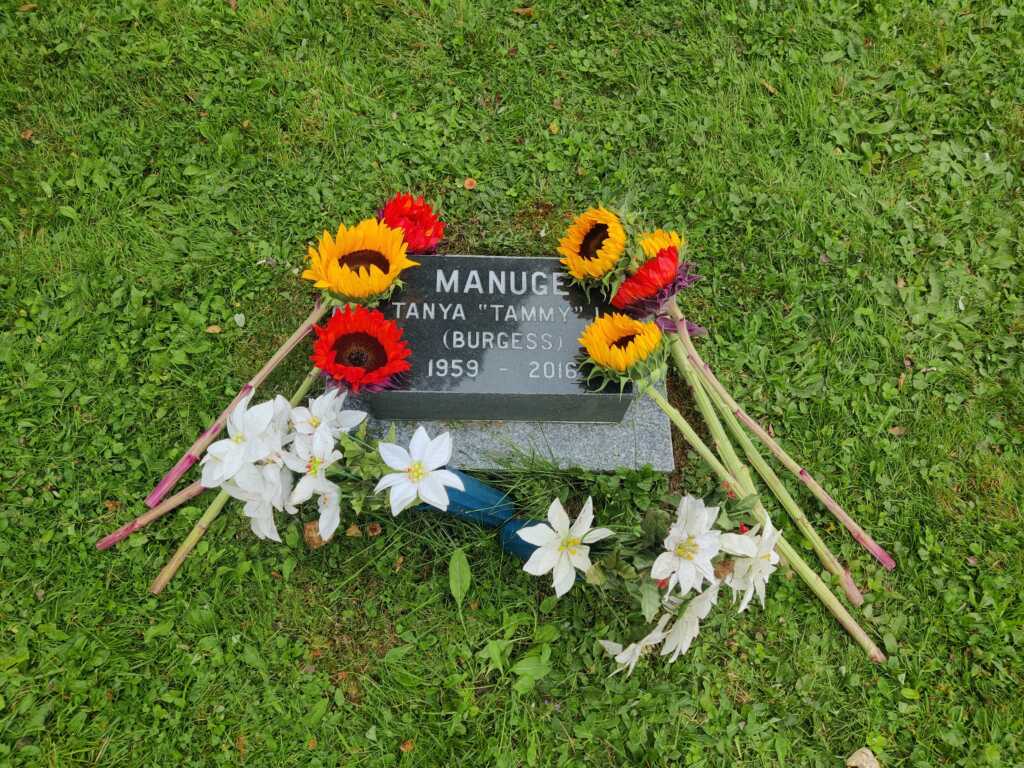
Finally.
You’re at rest where you wanted to be.




